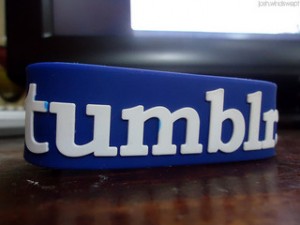 Facebook cost per click is going down in the U.K. while click-through rates are trending up. That’s according to the latest quarterly report from TBG Digital as reported by Brand Republic which showed Facebook cost per click ad prices dropped by 11% between the third and fourth quarters of 2011.
Facebook cost per click is going down in the U.K. while click-through rates are trending up. That’s according to the latest quarterly report from TBG Digital as reported by Brand Republic which showed Facebook cost per click ad prices dropped by 11% between the third and fourth quarters of 2011.
It’s important to point out that these results are for ads that led directly to another page on Facebook rather than offsite.
During the fourth quarter of 2011, the finance category accounted for the highest number of Facebook ad impressions but the food and drink category experienced the highest click-through rates.
For brands, the lowered cost per click for Facebook advertising mean lower investments and more testing. However, the story isn’t all positive. Facebook’s explosive growth hasn’t just slowed down in the U.K. According to Experian Hitwise, Facebook lost social networking visit opportunities to Google’s YouTube during December 2011 with its total share of social networking visits dropping from 58.5% in December 2010 to 51.5% in December 2011. However, Facebook’s overall number of visits in the U.K. remained stable during 2011 at 1.3 billion.
During the same time period, visits to YouTube grew by 45% from 417 million in December 2010 to 606 million in December 2011, and YouTube’s social networking market share grew from 23.6% to 25% during that time.
What do all these numbers mean for brands?
First, people are diversifying the way they consume content more than ever, and the idea that Facebook could be a one-stop shop for all content isn’t happening.
Second, the Facebook vs. Google battle is still in its early stages. With the launch of Google+ last year, this battle is likely to get far more heated in 2012.
Third, brands should diversify their social media marketing and advertising efforts to take advantage of lower Facebook advertising costs without placing too much focus on the social networking leader. Once you get executive buy-in to acquire a social media marketing budget, another challenge arises — convincing executives that there is more to the social web than Facebook. Diversification has always been the foundation for a successful marketing plan, and that should apply to your brand social media marketing efforts, too.
What do you think? What percentage of your brand’s marketing budget it allocated to Facebook in 2012? Leave a comment and share your thoughts.
Image: Flickr
Susan Gunelius is the author of 10 marketing, social media, branding, copywriting, and technology books, and she is President & CEO of KeySplash Creative, Inc., a marketing communications company. She also owns Women on Business, an award-wining blog for business women. She is a featured columnist for Entrepreneur.com and Forbes.com, and her marketing-related articles have appeared on websites such as MSNBC.com, BusinessWeek.com, TodayShow.com, and more.
She has over 20 years of experience in the marketing field having spent the first decade of her career directing marketing programs for some of the largest companies in the world, including divisions of AT&T and HSBC. Today, her clients include large and small companies around the world and household brands like Citigroup, Cox Communications, Intuit, and more. Susan is frequently interviewed about marketing and branding by television, radio, print, and online media organizations, and she speaks about these topics at events around the world. You can connect with her on Twitter, Facebook, LinkedIn, or Google+.


